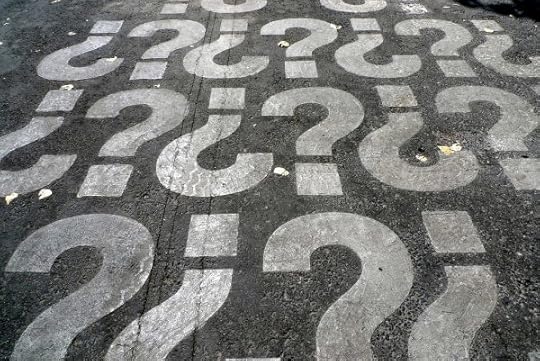How and Why To Ask Better Questions
On Tuesdays I write about the top voted question on Ask Berkun (see the lovely archive). This week’s question came via email from J.B.:
How can I learn to ask better questions?
To ask a good question requires two things: an insight and gumption. The root of all worthy questions is a desire to fill in a gap in your understanding of something. The insight in good questions comes from seeing that gap, finding its edges and forming a question from them that can serve as an invitation to others to fill it. But a question can’t ask itself. You need gumption, or the courage to ask the question to someone. Many people have good questions, but never find the courage to speak up and share them.
Part of the fear around questions is the worry that we will expose a truth that someone, perhaps even ourselves, doesn’t want to be brought to light. This is part of why meaningful conversations are uncommon. Most conversations in life are a kind of social grooming, a way to feel accepted and make others feel the same. We are social creatures and naturally avoid the risk of standing out, a fear that somehow asking a question will reveal our true nature, and we will be judged as stupid, wrong or unworthy. Since the most powerful questions don’t have easy answers, we tend to play it safe and avoid asking them.
What’s strange is it shouldn’t be hard to accept that there are many different answers in the world to some of our biggest questions. There are 6 billion people, in 196 nations, practicing 4200 different religions on planet earth. Most of them can’t possibly agree with each other on many important subjects. Logically, rationally, diversity is everywhere and we shouldn’t be afraid of exploring different ways to be and live. But the problem is our brains are designed for life in small tribes. We’re biased towards behavior that works well in small uniform communities, even if we now know about the wider and more diverse world that we live in.
If ignorance means simply being uninformed, then curiosity means you are interested in your own ignorance and to want to do something about it. Questions are the most direct and nimble manifestation of curiosity. Even asking 5 whys, which depends on gumption more than brilliance, uses persistent curiosity to force deeper thinking. Once you see questions as tools for exploration, you’re likely to ask more of them of more people, increasing your skill at crafting good ones.
But my favorite way to think about better questions is.. a list of questions! At any moment in life when you want to question something, pull up this list and you’re guaranteed to find inspiration for better thinking. This list is adapted from the work of Richard Paul and the Foundation for Critical Thinking.
The three different kinds of questions:
Those with one right answer (factual questions). “What is the boiling point of lead?”
Those with better or worse reasoned answers. “How can we best address the most significant problems of the world today?”
Those with as many valid answers as there are preferences (mere opinion). What is your favorite thing to do on vacation?
Questions for clarification:
What do you mean by____ ?
Is your basic point _____ or ______ ?
How does_____ relate to_____?
Could you put that another way? Or explain it to a smart person who knows nothing about this subject?
What do you think is the main issue here?
How does this relate to our discussion?
Questions that probe assumptions:
How do you know this to be true?
Is how you feel about this more powerful than how you think about it?
How did your source know this to be true?
Were there other equally reputable sources with a different opinion?
How can you verify or disapprove that assumption?
What would have to change for your position to change?
3. Questions that probe reasons and evidence:
What would be an example? a counter-example?
What is_____ analogous to?
What do you think causes _____ to happen? Why?
4. Questions about perspectives:
What is another way to look at this? (whose point of view can we try to take?)
How would you answer the complaints and requests they’d likely have?
Can/did anyone see this another way?
What would a wise person you respect but who disagrees with you say?
5. Questions that probe consequences:
What are you implying by that? Where is the end-point of your line of thinking?
What effect would that have and for who? Who would it be good for? Bad for?
Would that necessarily happen or only probably happen?
What is an alternative?
6. Questions about the question:
Can we break this question into smaller ones that are easy to work through?
What hidden assumptions are in this question?
Will it be easier to answer this question if we each go away and do some research and then return?
Is this question clearly stated? Do we understand it? Is there a better question to ask?
How would (someone we mutually respect for their wisdom) try to answer this question?
Do we need more or better facts to answer this?




